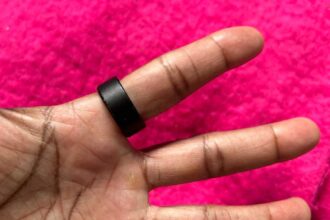MELBOURNE, May 11 (Reuters) – Shares of Australian-listed lithium miners rose on Thursday after a $10.6 billion industry merger raised expectations for more consolidation among producers of the main metal in electric vehicle batteries.
The partnership between Allkem Ltd (AKE.AX) and Livent (LTHM.N), announced Wednesday, will create the world’s third-largest producer of lithium, with demand expected to increase more than fivefold by 2030 during the energy transition. read more
Consolidating disparate lithium producers could lead to smoother supply chains for automakers like Tesla Inc. (TSLA.O), General Motors (GM.N) and BMW (BMWG.DE) who are increasingly hungry to secure their supplies.
Allkem shares rose as much as 18.6%, while Livent gained 5.2% overnight in New York, leading to strong sector progress with Australia’s largest independent lithium producer, Pilbara Minerals (PLS.AX), gaining as much as 8 % increased.
Developer Lake Resources (LKE.AX), which specializes in the same type of lithium extraction technology in Argentina as Livent, gained 13%. Others, including Liontown (LTR.AX), Core Lithium (CXO.AX), and Sayona Mining (SYA.AX), were up 2%-5% after an earlier rally.
Miners are flush with cash after the rise in commodity prices drove deals in Australia’s commodity sector last year. Lithium producers, in particular, have been printing money over the past two years as prices have increased sixfold before falling sharply earlier in 2023.
“We saw that the lithium price hasn’t been far from record highs for quite some time, meaning producers are being cashed in fairly,” said David Lennox of private wealth management firm Fat Prophets, which owns Allkem’s shares.
“There will probably be a few more acquisitions in the sector. Given the demand expectations, everyone wants to get on board.”
WIDER OFFER
Large cash reserves mean miners are well capitalized for heavy spending on expansion projects such as chemical conversion facilities with leftovers for dividends or acquisitions, said RBC analyst Kaan Peker in Sydney.
“M&A will continue” in the industry, Peker said, adding that as miners expand in size and scale, they can offer a broader offering to their customers and secure market share and control costs.
Martin Pérez de Solay, CEO of Allkem, cited the wider range of lithium products it could offer key customers such as Toyota, which also owns 6.16% of Allkem shares through its trading unit, as a key reason for the merger with Livent .
He said in an interview that Toyota is “pretty positive” about the deal.
“We all look forward to a larger and deeper business relationship with the Toyota Group together with them,” he said.
Toyota Tsusho Corp (8015.T), the trading entity that owns Allkem’s stock, said in an email to Reuters that the merger would increase growth opportunities for Allkem.
There will be no changes in the policies of the merged company and Toyota Tsusho in efforts to secure lithium in the future, the Japanese trading company added.
Demand for lithium is expected to increase as the company forecast this week that sales of battery electric vehicles would increase fivefold in the year to March 2024.
Historically, original equipment manufacturers (OEMs) such as automakers have shied away from taking upstream risks in miners because it’s not their core competency, but they can’t be counted as buyers in this round of M&A, RBC’s Peker said.
“The tightness in the raw material market is certainly a concern for them. If someone breaks out of the rankings, it is possible that OEMs will acquire upstream assets, something that is a little bit more meaningful than small business interests, with a significant decrease where they can determine their fate,” he said. .
Volkswagen (VOWG_p.DE) said in March it plans to invest in mines to lower battery cell costs, meet half of its own demand and sell to outside customers.
Takeover approaches in Australia’s lithium sector this year include Albemarle’s $3.7 billion bid for lithium developer Liontown and Tianqi-Igo’s approach for lithium explorer Essential Metals Ltd (ESS.AX).
Reporting by Melanie Burton and Yuka Obayashi.






